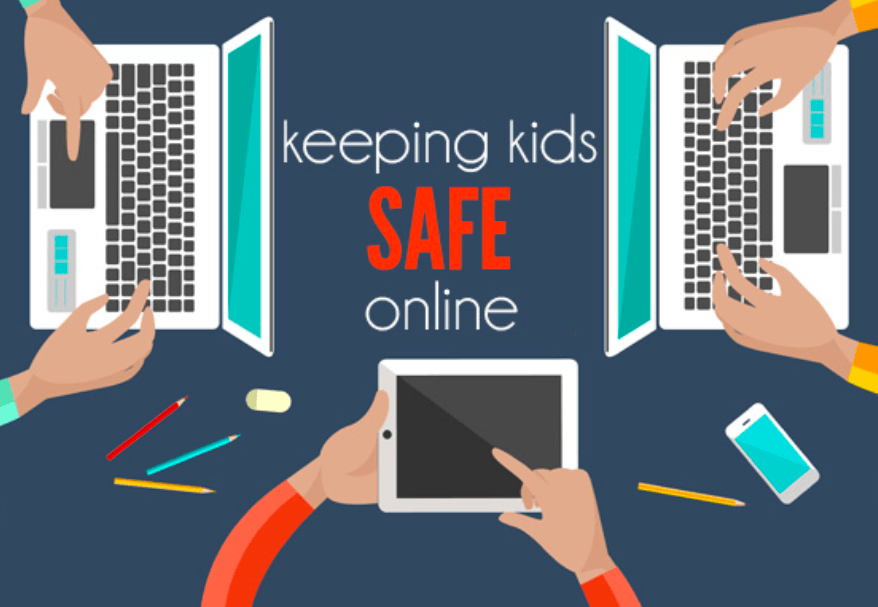7 Ways To Keep Your Kids Safe Online
August 20, 2022 2024-01-04 2:537 Ways To Keep Your Kids Safe Online
Here are 7 ways we recommend for parents and guardians to keep their kids safe on the internet:
1. Education –
The first and most important way for kids to be safe online is education. Parents must educate themselves about digital tools and must ensure their kids begin this same education early.
What we’ve experienced in the training arm of our organization is that parents often push their technology naivety onto their kids, this is what primarily leads to unnecessary fears about technology and the internet. What education does for the parents is to help them understand available tools and keep them up to date with technology events.
What proper education does for kids is to help them channel their knowledge in the right direction. As the popular saying goes, when the purpose of a thing is not known, abuse is inevitable.
We have trained 6-10 years old kids who now use the computer and the internet to develop games, animated stories, and mobile apps. Some have also learned how to use digital tools to promote their academic work.
The difference that we’ve seen between parents who are open to training their kids early and those who aren’t is that these parents that are open are well informed and exposed. The internet is like sex, sooner than later, your kids will learn about it, you either get them started early learning how to use it right or you wait till they may have already learned the things you’re avoiding.
2. Child Accounts –
When you set up accounts for your kids on the computer, phone, tab, or the internet, ensure you set up the account with the correct age.
Most platforms have built-in functionality to prevent kids from doing what adults should be doing. Creating an account with your details and giving it to your kids for their use will endanger them.
3. Link child accounts to your account –
When you set up a child account, also set up an adult account to manage that child account. Or attach the new child account to your existing adult account. What this does is that it ensures that whenever they want to change settings or go beyond what’s available for kids you will be notified.
You have to monitor their activities, not by policing them but by paying attention to the things they do and the content they consume. This is why your own education as an adult is also as important as the education of the kids.
Some of these popular platforms will even send you weekly or monthly summaries of the activities in the child’s account.
4. Age-appropriate devices –
There are phones, tabs, and computers specifically made for kids. Buying kid devices that are meant for adults will endanger them.
5. Pay attention to Ratings –
Even after setting up an account with the appropriate age and buying age-appropriate devices, parents should pay attention to the content rating. There is a reason multimedia contents come with ratings, this is to ensure the right content for only the right age group. This is valid for cartoons, video games, cable TV channels, music, movies, computer software, internet devices, and websites.
When a cartoon is rated age 9 and above, don’t allow kids below age 9 to watch it, those numbers are not mere labels. When hip hop music is rated 18, you’re a terrible parent/guardian/school if you allow kids below 18 to listen and dance to such music. Kids pay attention to words and actions and we must do everything as responsible adults to protect them.
6. You’re their first example –
Before kids will take after a stranger, they most likely would have tried to imitate you first. If you’re unable to stop your bad habits, please do well to ensure you keep them away from your kids or the kids around you.
Kids often do as adults do, not as adults say.
7. When confused, speak to a professional –
Not everything you don’t understand about technology and the internet should be termed as demonic or evil, this is particularly so with African parents who are religious. Before you accuse your kids, be sure to ask a professional for guidance.
They will eventually know more than you know whether you like it or not, it will help you a lot if you build trust by responding to unknowns from an educated point of view as opposed to making unfounded accusations. Parents must ensure kids go beyond conventional school education. There are millionaire kids on the internet making so much money just by reviewing toys, devices, video games, and the likes.
Some of our current/ex-students who are kids are already building games, animated stories, mobile apps, and websites. Their parents are preparing them for a future that is inevitable.
What kind of future are you preparing your kids for?


